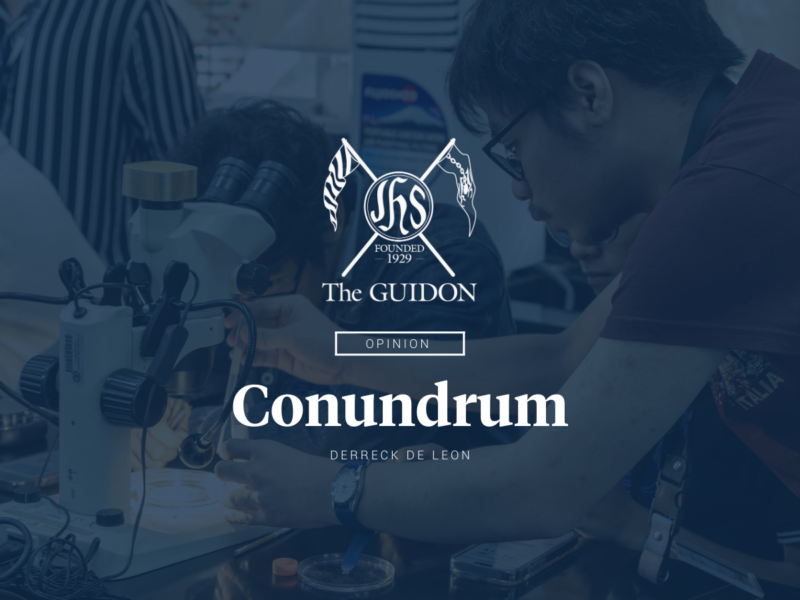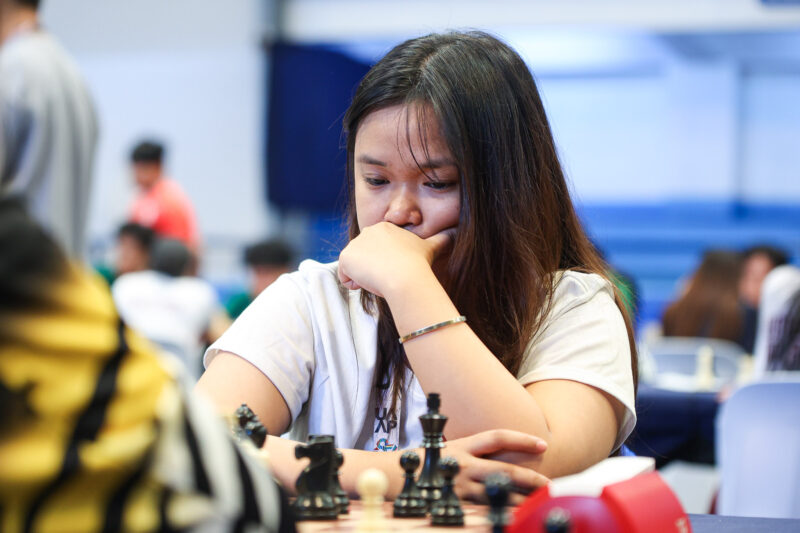THE ATENEO Task Force (ATF) held a day-long forum titled “Tiwala Pinas! Ako ang Pag-Asa!” to discuss good governance and active youth participation on November 30 at the Singson Hall, Ateneo Grade School.
The ATF is the official student group of the Ateneo for the 2016 National Elections.
The forum, in partnership with financial institution World Bank, featured guest speakers who shared their experiences with working for the government and their knowledge on different issues being faced by the Philippines.
Included in the list of speakers were History Department Instructor Brian Giron, civil society organization BANTAY.ph Project Officer Carmine Gañac, World Bank lead economists Aleksandra Posarac and Rogier van den Brink, and Siayan, Zamboanga del Norte Mayor Flora Villarosa.
Youth government employees Kenneth Abante, Chess Carlos, Julienne Joven, Kathleen Ko, Ana Raymundo, and Delfin Villafuerte also spoke at the event.
Students from various universities such as the Ateneo, De La Salle University-Dasmariñas, Far Eastern University, Pamantasan ng Lungsod ng Maynila, and University of the Philippines-Diliman were in attendance.
ATF Head Mawe Duque opened the event with the question, “What hurts you the most?”
He shared how he realized that his personal struggle with public transportation congestion was part of a bigger structural problem.
Duque said it is a challenge for everyone to influence discourse on important issues in order to influence the candidates.
“The national elections will serve as a mobilizing body not only for the youth but also for the Philippines,” he said.
Si Batman at si Chomsky
Giron shared that his problem with the expression “Bahala na si Batman (Leave it to Batman)” is that it contains a subtext: “Bahala na, you don’t care. Pero nandiyan si Batman, which tells you, ‘Bahala na, hindi ako.’ Somebody else will just do it for me (Leave it, you don’t care. But Batman is there, which tells you, ‘Leave it to someone else, not me.’ Somebody else will just do it for me).”
He then questioned the presence of Batman during the natural disasters that struck the country, when Martial Law was declared, or when civilians were killed in the Maguindanao Massacre.
“The problem with Batman is that he has just never been around. The problem with ‘Bahala na si Batman’ is we perpetuate this notion that something is coming and that something else is going save and something else is going to make things better,” Giron said.
Giron also quoted linguist and philosopher Noam Chomsky on how university students occupy a very unique space.
He explained that university students find themselves at the end of their time under parental control but also aren’t burdened by other set of controls such as financial concerns in their adult life.
He said that given this opportunity, students are able to do great things and serve as a binding force in fighting for social justice issues.
Giron emphasized that the idea of hope should not be placed on a Batman, on one person alone.
“[Hope] shouldn’t be on a president who you think will change everything, because that’s not how democracies work. Democracy works when we make it work. We have to take an active hand in our own society,” he said.
Coming from the World Bank
Van den Brink noted that the Philippines is experiencing similar problems in economic growth and corruption as the United States of America back in the years.
“The issues [the Philippines] is experiencing [have been experienced by] other countries such as the [United States],” he said.
According to him, most of the countries were eventually able to resolve the issues because the citizens had their own promise of hope for the future.
“Let’s not wait for Batman or [any other hero] to have any change, let’s start working towards that change—make that hope a reality,” he explained.
Moreover, Posarac discussed issues regarding the poverty incidence and income inequality in the Philippines.
She said that 25% of the country’s population is estimated to live below the poverty line while 40% experience poverty at least once per year.
Furthermore, around 15% of these people are deemed to be chronically poor—those who never get out of poverty—and the other 15 to 25% only occasionally go above the poverty line.
“Poverty is not a lifestyle choice. No one wants to be poor but unfortunately, [no matter] how hard some people work, they aren’t given enough income to [provide] for their basic needs,” said Posarac.
She explained that poverty is a “sticky dilemma” that not only directly affects the lifestyle of people but also, in turn, other aspects of the society.
“Because of poverty, people can’t send their children to school. [Since] poverty brings [people down], education is hard for them to obtain even if it’s a basic right,” she added
Working for the government
In a group discussion, current youth public servants shared their experiences in working for the government.
Raymundo shared her enthusiasm for working in the government. “It’s amazing to know that you’ve done something that actually benefits the country. My experience with the Commission on Higher Education has made me work more on how to improve college level education for the country in partnership with the Department of Education.”
Moreover, Villafuerte related his current work at the Department of Finance with his previous experience as a public school teacher.
“The work I’m doing now is so much harder than being a public school teacher but no less fulfilling,” he said.
He said that working for the government allowed him to see how things are behind the scenes, which helped him realize how he can help society.
“I won’t romanticize working for the government because it’s a really hard task, but with the five months I’ve had, I know that I’m learning things from my boss that I can use to give back to the Philippines,” he added.
Joven, for her part, cleared up a misconception with regard to how people view the government. “People tend to think that everyone in the government is corrupt. While it is true that some truly are, not everyone is.”
She said that if people never take the chance of placing their trust in the government there would be no way for them to help the development of the country.
Ko also added that it is unfair for people to view one side of the government only.
She said, “[The] media tends to always highlight the incompetencies of the government but never the good that we’ve done.”
According to her, the government may have its flaws but it also has several people working hard for the country.
“It hurts when people always bash us when you see people in the office who are genuinely working really hard for the society’s benefit,” she added.
All together
According to Gañac, “Active youth participation is also needed for good governance to happen.”
She explained that in order for the government to do their job well, it is important for the youth to know their own rights and voice out their opinions.
“The government won’t function well if you don’t do your part. Know your own rights and make sure to use them so that the government can serve you the best way possible,” she said.
For Abante, the youth must be aware of the role they must play for the country, especially in light of the corruption that is plaguing it.
He also noted that working for the Department of Finance has enabled him to see [how he can play his part in the country] by helping in the reform of taxes such as the sin tax as well as implementing charges against tax evaders and smugglers.







